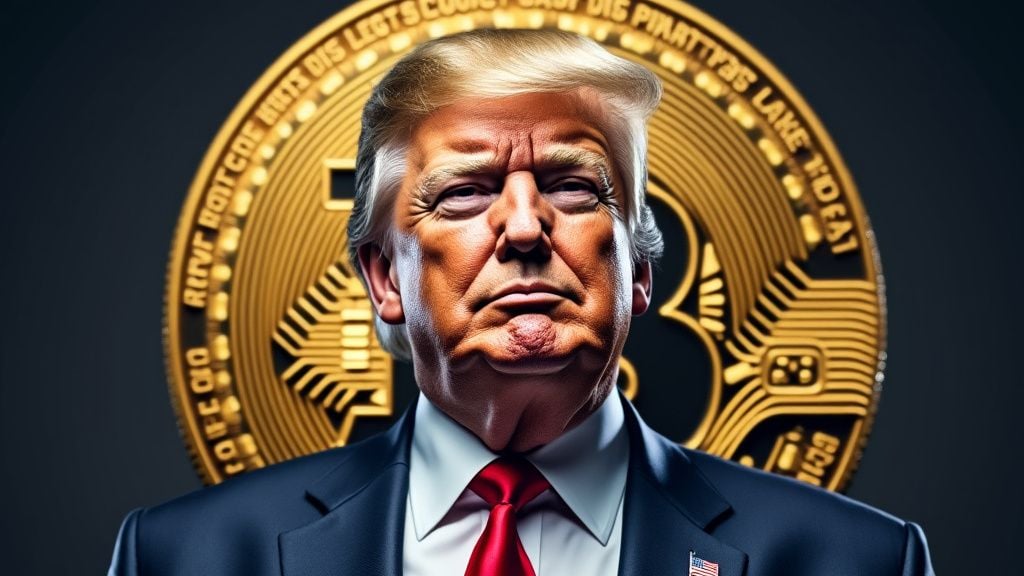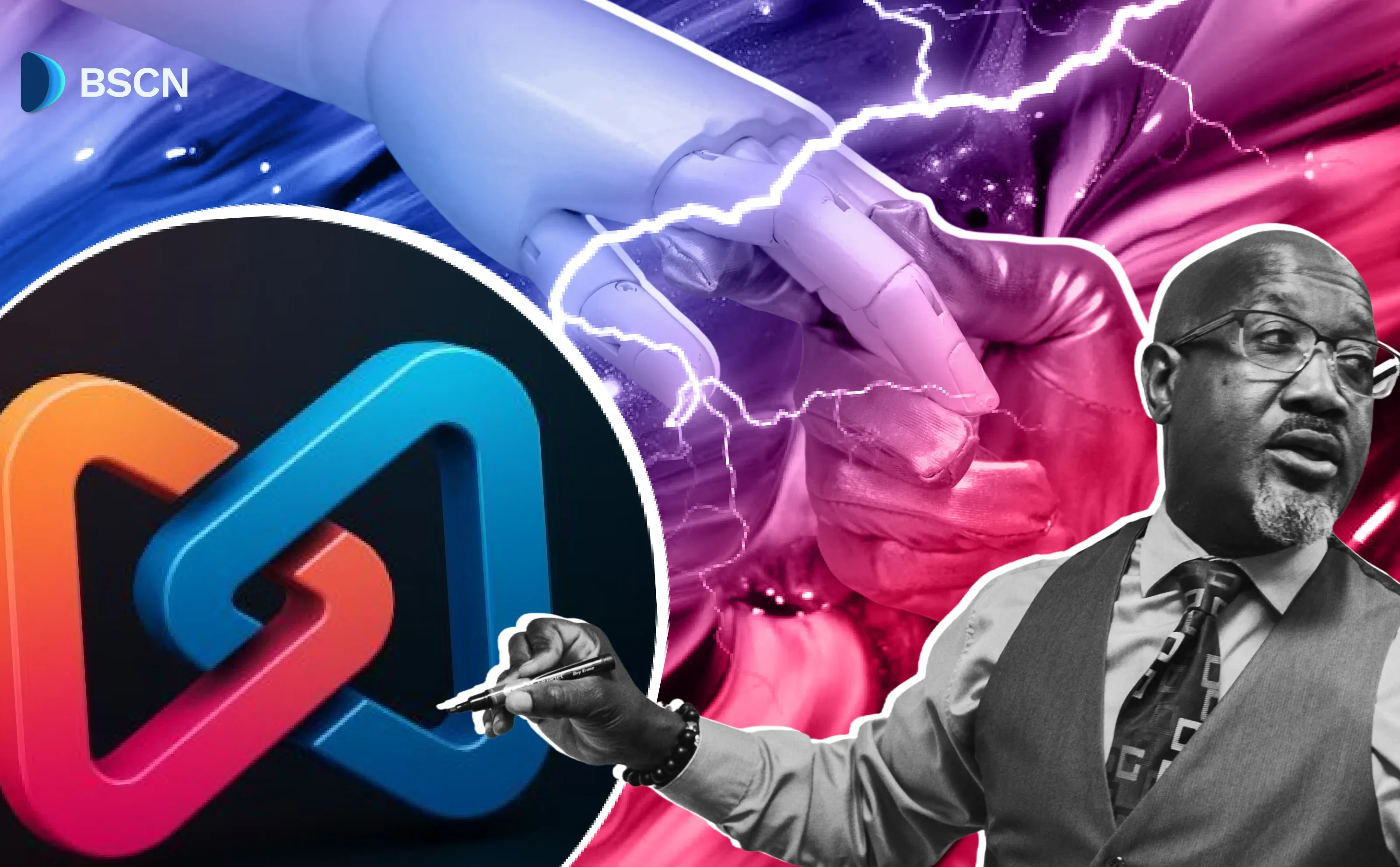BTC
What Donald Trump's Victory Means for Crypto Policy, His Legal Battles, and Ross Ulbricht's Future

Beyond crypto policy, Trump’s presidency reopens questions about his legal battles.
BSCN
November 7, 2024
The 2024 U.S. Presidential election has taken a dramatic turn as Donald Trump is set to reclaim the White House, ushering in what many believe will be a favorable era for cryptocurrency.
His victory, however, is overshadowed by pending legal challenges, and it has raised questions about the future of high-profile individuals in the crypto space, like Ross Ulbricht.
In this article, we’ll explore the implications of Trump’s win on cryptocurrency regulation, examine his ongoing legal battles, and discuss whether this administration might impact Ulbricht’s long-standing prison sentence.
What Trump's Election Victory Means for His Legal Cases
As president, Trump’s legal position changes significantly, creating new challenges for prosecutors and opening potential paths for him to mitigate or stall these proceedings. Here’s an analysis of what Trump’s election victory might mean for his legal challenges.
Federal Cases: Immunity and Potential Dismissals
Trump faces two high-profile federal cases: one involving alleged interference in the 2020 election and another concerning the handling of classified documents at his Mar-a-Lago residence. Both cases are led by the Department of Justice (DOJ), an agency Trump now oversees as president.
The DOJ traditionally follows a policy that restricts the indictment or prosecution of a sitting president, making it unlikely Trump will face trial while in office. Legal experts suggest that Trump’s re-election could place significant pressure on the DOJ to drop these cases altogether.
Trump has also openly stated that he plans to replace current DOJ leadership, potentially appointing officials more sympathetic to his defense. This might lead to a scenario where the new Attorney General halts or withdraws the federal cases against him, effectively shielding Trump from prosecution.
Furthermore, Trump could issue directives to the DOJ to dismiss any ongoing investigations. He’s also suggested that he could quickly fire Special Counsel Jack Smith, who has been investigating these federal charges. Should Smith be removed, Trump’s legal team could argue that the cases lack prosecutorial merit, prompting their dismissal.
Sources familiar with the matter told ABC News that Jack Smith is in talks with senior Justice Department leadership about how to terminate his prosecution of President-elect Donald Trump.
Smith's prosecutors have not decided how they will approach dismissing both the federal election subversion case and the appeal of Judge Aileen Cannon's dismissal of the classified documents case.
State-Level Cases: Hurdles and Limitations
Unlike federal cases, Trump’s state-level indictments are not directly under his presidential influence.
Among these cases are the Manhattan "hush money" case involving Stormy Daniels and a case in Georgia related to alleged election meddling in 2020. These cases fall outside the federal jurisdiction, meaning they can proceed independently of Trump’s presidential authority.
In the Manhattan case, Trump was convicted on multiple felony counts for falsifying business records. He is set to face sentencing in November 2024.
Although sentencing a sitting president is unprecedented, legal analysts believe the judge might consider alternatives like delayed sentencing or a symbolic sentence to avoid a constitutional crisis. If Trump remains in office through another term, his sentencing could effectively be delayed until he leaves the presidency.
In Georgia, prosecutors are pursuing charges against Trump for alleged attempts to overturn election results. Given the nature of this case, it’s expected to proceed despite his presidency, as state courts are generally unaffected by federal immunity.
However, Trump’s legal team may still pursue motions to transfer this case to federal court, potentially creating additional delays. Even if this tactic is unsuccessful, Trump's team might use legal procedures to stall or mitigate the impact of these charges.
Would Ross Be Freed?
Donald Trump’s re-election has reignited the discussion surrounding Ross Ulbricht’s potential clemency. The founder of Silk Road, a dark web marketplace, Ulbricht has been serving two life sentences plus 40 years since 2015.
One year for each finger on both hands.
— Ross Ulbricht (@RealRossU) October 1, 2023
Today ends a full decade in prison.
I sometimes fear I'll spend the rest of my life behind concrete walls and locked doors. But I have no one else to blame. It's my poor choices that led me here.
All I can do now is pray for mercy.
Here’s a look at the case, its implications for the crypto world, and whether Ulbricht’s supporters might finally see their goal realized.
Ulbricht and Silk Road: A Background
Ross Ulbricht, a former physics graduate, launched Silk Road in 2011 under the pseudonym “Dread Pirate Roberts.” His vision was an online marketplace driven by free trade principles and a focus on privacy.
Silk Road allowed users to buy and sell a range of items, including illegal drugs, using Bitcoin for anonymous transactions. Ulbricht’s platform quickly grew, attracting thousands of users and making headlines as a hub for illicit trade.
In 2013, FBI agents arrested Ulbricht in a San Francisco library. Seizing his laptop and shutting down the site, the FBI charged him with multiple offenses, including money laundering, drug trafficking, and conspiracy to commit computer hacking.
In 2015, Ulbricht received a sentence of two life terms plus 40 years without parole—a decision criticized by some as excessively harsh and a symbol of the legal system’s severity toward internet freedom and cryptocurrency-related cases.
Trump’s Previous Consideration of Pardon
During his first term, Trump hinted at a potential review of Ulbricht’s case. Reports suggested he expressed some sympathy, influenced by advocates who argued that Ulbricht’s sentence was disproportionate compared to penalties for similar crimes.
Libertarian groups, public campaigns, and notable political figures voiced their support for Ulbricht’s clemency, emphasizing his role in crypto’s early days and questioning the fairness of his punishment.
Despite these signals, Trump ultimately left office without granting clemency to Ulbricht. Supporters were disappointed, yet Trump’s recent pledge during his 2024 campaign has rekindled hopes.
His promise at the Libertarian National Convention, where he vowed to commute Ulbricht’s sentence on “day one,” drew cheers and energized the “Free Ross” movement.
Trump’s Win and Its Meaning for Cryptocurrency
As Trump’s administration begins, the cryptocurrency world watches with bated breath. The former president’s pro-crypto stance contrasts sharply with the regulatory challenges crypto firms faced under the Biden administration.
During his campaign, Trump vowed to make the U.S. a “Bitcoin superpower,” a pledge that has resonated with crypto enthusiasts and investors alike. Following his election, Bitcoin surged by more than 10%, reaching a new all-time high of over $76,000.
Regulatory Clarity and a Potential Bitcoin Stockpile
Under Biden, crypto companies faced stringent measures and lawsuits from the Securities and Exchange Commission (SEC), which filed cases against giants like Coinbase, Binance, and Kraken. Trump, in contrast, has suggested he would fire SEC Chair Gary Gensler, a move many believe could help reduce regulatory barriers.
Trump’s campaign promise to build a “Bitcoin stockpile” also hints at a future where Bitcoin could be strategically held by the U.S. government, potentially influencing the global perception of cryptocurrency as a legitimate asset.
Legislative Changes and Crypto-Friendly Policies
As a result of Trump's victory, crypto-friendly lawmakers in Congress may be able to move forward with bills related to stablecoins and digital asset classifications faster. These changes could provide much-needed clarity to the industry, which has been mired in regulatory uncertainty.
Analysts predict that clearer regulations could open the door to new crypto exchange-traded funds (ETFs) and create an environment where crypto innovation can flourish.
Economic Impact on Crypto Markets
Trump’s commitment to supporting the U.S. Bitcoin mining industry also suggests a potential boost for the domestic crypto economy. During his campaign, he expressed a desire to see “every Bitcoin made in America,” which could fuel investments in the U.S. mining sector and encourage firms to establish operations domestically.
Stocks of mining companies like Marathon Digital and Riot Platforms have already seen gains, and this trend may continue as the new administration outlines its crypto policy.
Disclaimer
Disclaimer: The views expressed in this article do not necessarily represent the views of BSCN. The information provided in this article is for educational and entertainment purposes only and should not be construed as investment advice, or advice of any kind. BSCN assumes no responsibility for any investment decisions made based on the information provided in this article. If you believe that the article should be amended, please reach out to the BSCN team by emailing [email protected].
Latest News
Crypto Project & Token Reviews
Project & Token Reviews
Comprehensive reviews of crypto's most interesting projects and assets
Learn about the hottest projects & tokens
Latest Crypto News
Get up to date with the latest crypto news stories and events








